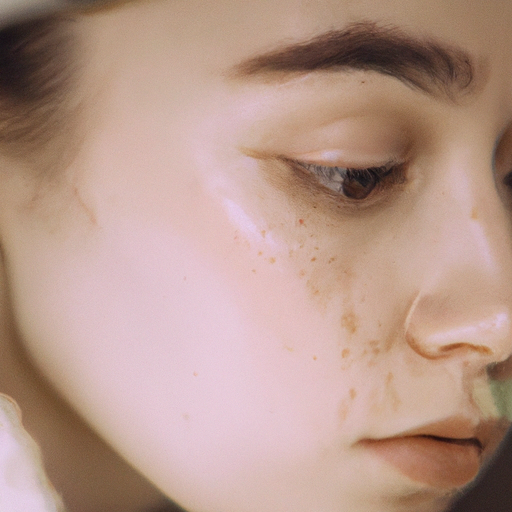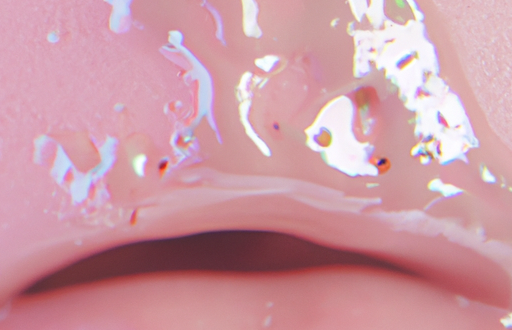The Latest Innovations in Acne Treatments for Every Skin Type
Acne is a common skin condition that affects people of all ages. It can be embarrassing and uncomfortable, and it can also lead to long-term skin damage if left untreated. Fortunately, there are a variety of treatments available to help reduce the appearance of acne and prevent future breakouts. In this article, we’ll discuss the latest innovations in acne treatments for every skin type.
For those with oily skin, topical retinoids are a popular choice. Retinoids are derived from vitamin A and work by unclogging pores and reducing inflammation. They can be found in a variety of over-the-counter products, such as Differin Gel and Retin-A.
For those with dry skin, benzoyl peroxide is a great option. Benzoyl peroxide works by killing the bacteria that cause acne and reducing inflammation. It can be found in a variety of over-the-counter products, such as Clearasil and Proactiv.
For those with sensitive skin, salicylic acid is a good choice. Salicylic acid works by exfoliating the skin and unclogging pores. It can be found in a variety of over-the-counter products, such as Neutrogena and Clean & Clear.
For those with combination skin, a combination of treatments may be necessary. A combination of topical retinoids, benzoyl peroxide, and salicylic acid can be used to target different areas of the skin.
For those with severe acne, a combination of topical treatments and oral medications may be necessary. Oral medications, such as antibiotics and isotretinoin, can help reduce inflammation and kill bacteria.
No matter what type of skin you have, there are a variety of treatments available to help reduce the appearance of acne and prevent future breakouts. If you’re unsure which treatment is right for you, it’s best to consult with a dermatologist to determine the best course of action.
The Benefits of Combining Different Acne Treatments for Different Skin Types
Acne is a common skin condition that affects people of all ages and skin types. While there are many treatments available to help reduce the appearance of acne, combining different treatments can be beneficial for different skin types.
For those with oily skin, combining a topical retinoid with a benzoyl peroxide treatment can be effective. Retinoids help to reduce the production of sebum, which is the oily substance that can clog pores and lead to acne. Benzoyl peroxide helps to kill bacteria that can cause acne. Together, these two treatments can help to reduce the appearance of acne and prevent future breakouts.
For those with dry skin, combining a topical retinoid with a moisturizer can be beneficial. Retinoids help to reduce the production of sebum, which can help to reduce the appearance of acne. Moisturizers help to keep the skin hydrated and prevent it from becoming too dry, which can lead to irritation and further breakouts.
For those with sensitive skin, combining a topical retinoid with a gentle cleanser can be beneficial. Retinoids help to reduce the production of sebum, which can help to reduce the appearance of acne. Gentle cleansers help to remove dirt and oil from the skin without causing irritation.
Combining different treatments can be beneficial for different skin types. It is important to speak to a dermatologist to determine the best combination of treatments for your skin type. With the right combination of treatments, you can reduce the appearance of acne and prevent future breakouts.
Natural Acne Treatments: What Works and What Doesn’t

Acne is a common skin condition that affects millions of people around the world. While there are many treatments available, natural acne treatments are becoming increasingly popular. But what works and what doesn’t?
One of the most popular natural acne treatments is tea tree oil. This essential oil has been used for centuries to treat a variety of skin conditions, including acne. Studies have shown that tea tree oil can be effective in reducing the number of acne lesions and improving the overall appearance of the skin. However, it is important to note that tea tree oil can be irritating to the skin and should be used with caution.
Another popular natural acne treatment is apple cider vinegar. This acidic liquid has been used for centuries to treat a variety of skin conditions, including acne. Studies have shown that apple cider vinegar can help reduce the number of acne lesions and improve the overall appearance of the skin. However, it is important to note that apple cider vinegar can be irritating to the skin and should be used with caution.
Honey is another natural acne treatment that has been used for centuries. Studies have shown that honey can help reduce the number of acne lesions and improve the overall appearance of the skin. However, it is important to note that honey can be irritating to the skin and should be used with caution.
Finally, aloe vera is another popular natural acne treatment. Studies have shown that aloe vera can help reduce the number of acne lesions and improve the overall appearance of the skin. However, it is important to note that aloe vera can be irritating to the skin and should be used with caution.
In conclusion, there are many natural acne treatments available. While some of these treatments may be effective, it is important to note that they can be irritating to the skin and should be used with caution. It is also important to consult with a dermatologist before using any natural acne treatments to ensure that they are safe and effective for your skin type.
How to Choose the Best Acne Treatment for Your Skin Type
Acne is a common skin condition that affects people of all ages. While it can be frustrating and embarrassing, there are a variety of treatments available to help manage and reduce the symptoms of acne. However, it is important to choose the right treatment for your skin type in order to get the best results.
If you have oily skin, you should look for treatments that contain ingredients such as salicylic acid, benzoyl peroxide, and retinoids. These ingredients help to reduce oil production and unclog pores, which can help to reduce the appearance of acne. You should also look for products that are non-comedogenic, meaning they won’t clog your pores.
If you have dry skin, you should look for treatments that contain hydrating ingredients such as glycerin, hyaluronic acid, and ceramides. These ingredients help to keep your skin hydrated and reduce the appearance of dryness and flakiness. You should also look for products that are non-irritating and won’t cause further dryness or irritation.
If you have sensitive skin, you should look for treatments that contain calming ingredients such as aloe vera, chamomile, and green tea. These ingredients help to soothe and calm the skin, reducing redness and irritation. You should also look for products that are free of fragrances and dyes, as these can be irritating to sensitive skin.
No matter what type of skin you have, it is important to choose the right acne treatment for your skin type. By doing so, you can help to reduce the appearance of acne and keep your skin looking healthy and clear.
The Pros and Cons of Different Acne Treatments for Different Skin Types
Acne is a common skin condition that affects people of all ages. While it is most common in teenagers, it can also affect adults. There are many different treatments available for acne, but not all of them are suitable for all skin types. In this blog post, we will discuss the pros and cons of different acne treatments for different skin types.
For those with oily skin, one of the most popular treatments is benzoyl peroxide. This is a topical medication that helps to reduce the amount of oil on the skin and can help to reduce the appearance of acne. The main benefit of this treatment is that it is relatively inexpensive and easy to use. However, it can be drying and can cause irritation in some people.
For those with dry skin, salicylic acid is a popular treatment. This is a topical medication that helps to exfoliate the skin and reduce the appearance of acne. The main benefit of this treatment is that it is gentle and can help to reduce inflammation. However, it can be irritating for some people and can cause redness and dryness.
For those with sensitive skin, tea tree oil is a popular treatment. This is a natural oil that has antibacterial and anti-inflammatory properties. The main benefit of this treatment is that it is gentle and can help to reduce inflammation. However, it can be irritating for some people and can cause redness and dryness.
For those with combination skin, a combination of treatments may be necessary. This could include a combination of benzoyl peroxide, salicylic acid, and tea tree oil. The main benefit of this treatment is that it can help to reduce the appearance of acne and can be tailored to the individual’s skin type. However, it can be expensive and time-consuming.
No matter what skin type you have, it is important to consult with a dermatologist before starting any acne treatment. They can help to determine the best treatment for your skin type and can provide advice on how to use the treatment safely and effectively.
In conclusion, there are many different treatments available for acne, but not all of them are suitable for all skin types. It is important to consult with a dermatologist before starting any treatment to ensure that it is safe and effective for your skin type.
 Top Naija News – Nigeria News, Nigerian News & Top Stories Top Naija News – Nigerian Newspapers, Nigerian News. topnaijanews is a daily Nigerian newspaper covering Latest News, Breaking News, Entertainment, Sports, Lifestyle and Politics.
Top Naija News – Nigeria News, Nigerian News & Top Stories Top Naija News – Nigerian Newspapers, Nigerian News. topnaijanews is a daily Nigerian newspaper covering Latest News, Breaking News, Entertainment, Sports, Lifestyle and Politics.

